One month on: how a tragedy has unfolded in Ukraine | Ukraine
On 24 February, shortly before dawn broke in Moscow, Vladimir Putin made the latest in a series of televised addresses. His previous appearances had contained increasingly ominous tirades about Ukraine. Now here was the culmination: the declaration of what the Russian president euphemistically called a “special military operation”.
The goal, said Putin, was the “demilitarisation and denazification” of Ukraine.
Minutes later, missiles were launched towards Kyiv, Kharkiv and many other Ukrainian cities. For the Ukrainians who woke up to sound of the impacts, and then for millions across the world who woke up to the news of Putin’s decision, the first reaction was shock.
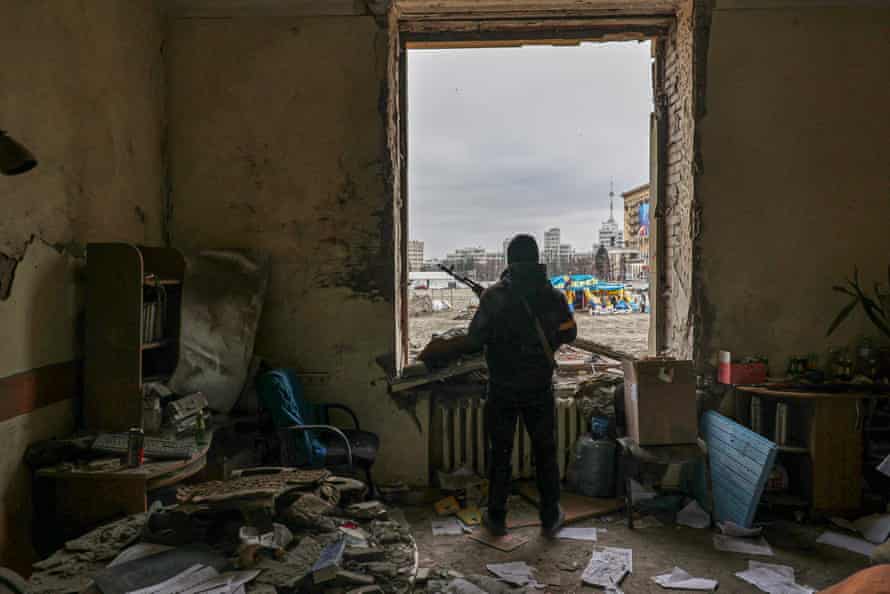
Even those Ukrainians in government who had spent the past weeks rehearsing what to do in the event of a Russian attack were stunned when the invasion became reality.
“I had 10 minutes of panic when I was running around the house and I had no idea what to do. Then I pulled myself together and went to work,” said Natalia Balasynovych, the mayor of Vasylkiv, a town outside Kyiv hosting an airbase that was hit in the first hours of the war.
Before long, makeshift checkpoints were being put up across the country, volunteers flocked to sign up for territorial defence units, and even some pensioners got to work making molotov cocktails. At the same time, millions of people, mostly women and children, fled to the west of Ukraine, or crossed borders into neighbouring countries.
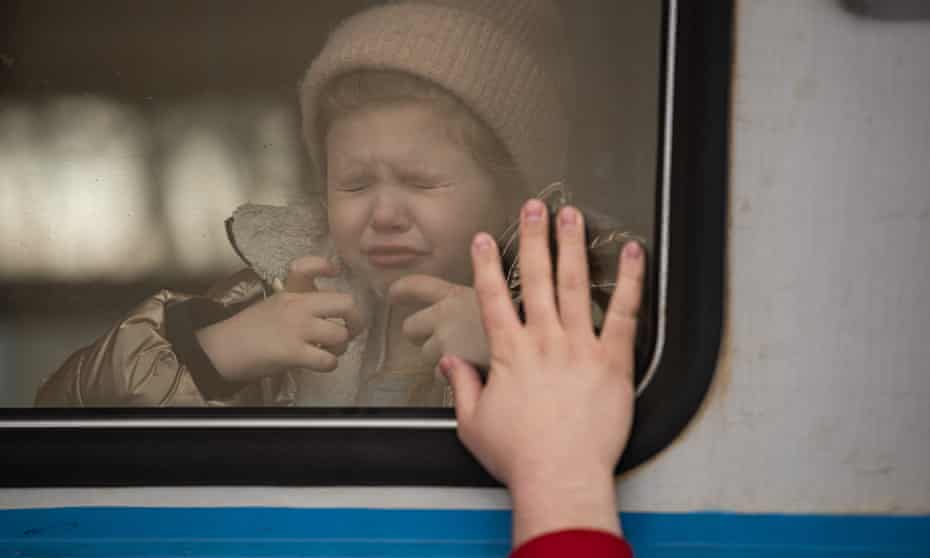
During the first days of the war there was a sense that something terrible and momentous had occurred that would change the contours of global affairs irrevocably, but also confusion about exactly how it might look, and what it meant for the future of Ukraine, Russia, Europe and the world.
As Putin’s invasion reaches the month mark on Thursday, some of those questions have been answered but much still hangs in the balance.
Among the international community there are ongoing debates about how firm a line to take with Russia, and where the divide is between a moral obligation to support Ukraine and potentially provoking Moscow into further escalation, as for the first time since the early 1980s Putin has floated the possibility of using nuclear weapons.
The initial Russian plan, it seems, was that its operation would be a kind of slightly bloodier version of its 2014 Crimea annexation, with pockets of resistance mopped up and then a Russian puppet regime taking control. The plan, which could only have been based on shockingly flawed intelligence about the mood in Ukraine and the state of its army, was quickly shown to be hopeless.
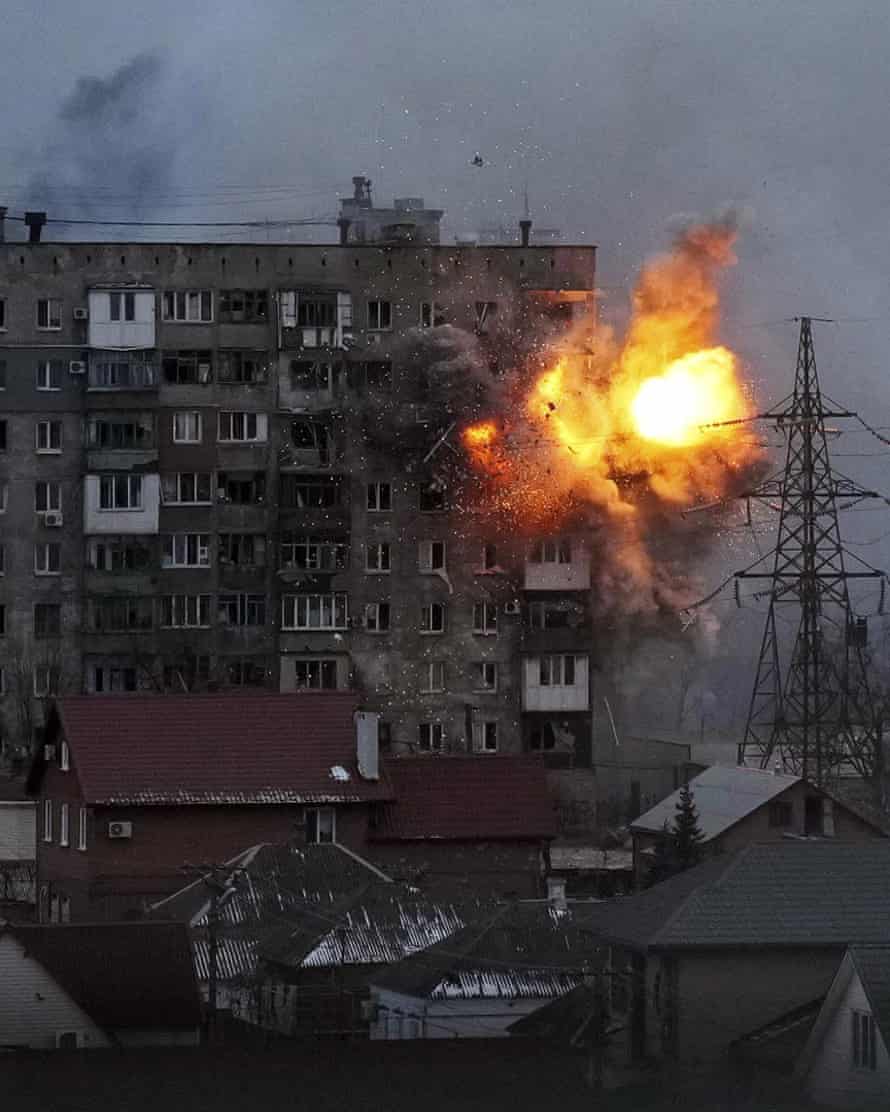
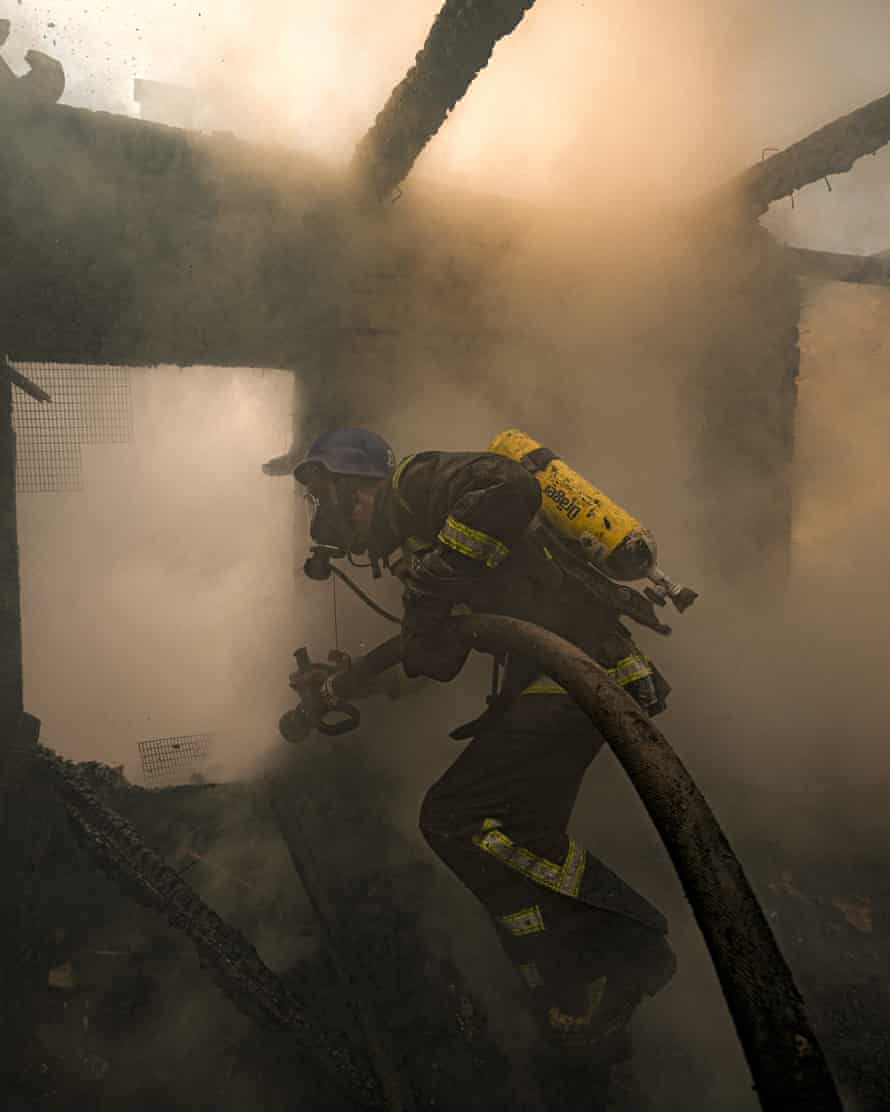
A speedy advance on Kyiv faltered and devolved into grim fighting in the western suburbs. Attempts to take Kharkiv and other cities in the east were repelled, with heavy Russian losses.
Even in the few cities where the Russians have established control bloodlessly, in the south of the country, their forces face angry crowds and have had few successes in co-opting local politicians.
“For years they have been lying to themselves that people in Ukraine were supposedly waiting for Russia to come,” said the Ukrainian president, Volodymyr Zelenskiy, in one of his frequent video addresses. “They did not find collaborators who would hand over the city and the power to the invaders.”
The lack of success has led to a grimmer phase of the war. The idea that the tactics Russia used in Syria would be morally and politically unpalatable for Russia’s leadership, given the family ties between millions of Russians and Ukrainians, quickly proved naive. Russia showed itself willing to submit Mariupol, Kharkiv and other Russian-speaking cities to ruthless artillery and air bombardment.
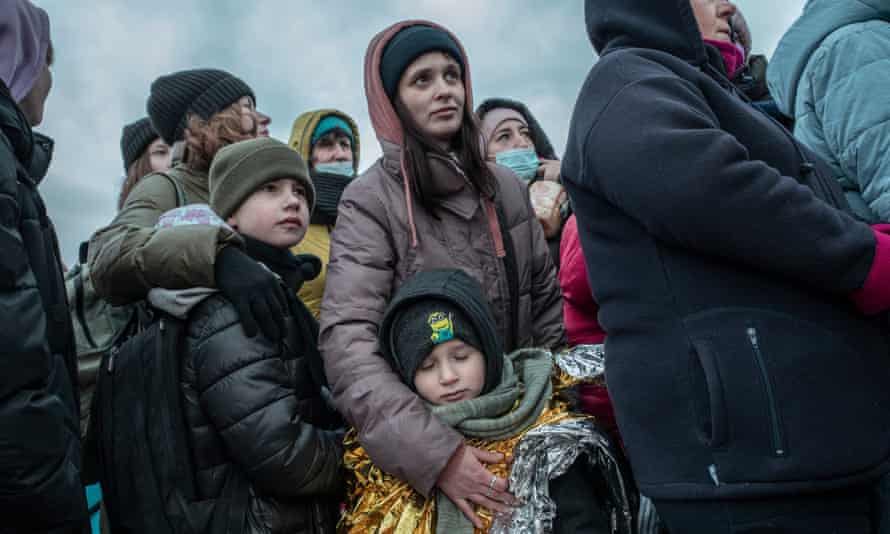
For Ukraine, amid the heartache and the bloodshed, there is the feeling of a new sense of national identity being born, even as the threat of the eradication of the state by the Russian military has far from subsided.
A country where many different ideas of what it means to be Ukrainian have lived in sometimes uneasy coexistence has now found a common idea around which to unite.
“I suppose they hoped it would not be like this, when ordinary people come out without weapons to stop tanks and tell them to leave,” said Gennady Trukhanov, the Russian-speaking mayor of Odesa, who had once been considered a Russian stooge. He added that only “a bastard, idiot or scumbag” would drop bombs on Odesa.
The horrific stories emerging from those residents of Mariupol who have been able to escape in recent days make Putin’s claim a month ago that his attack was meant to defend Russian speakers from Kyiv’s “genocide” seem even more twisted than it sounded back then.
In 2014 Mariupol was split between pro-Russian and pro-Ukrainian elements and saw violent street clashes, but since then it had been renovated and spruced up by Ukrainian authorities. The terror in which its residents have been living as hostages over the past weeks is a tragedy that is likely to be remembered for…
Read More:One month on: how a tragedy has unfolded in Ukraine | Ukraine
